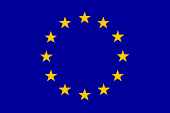
Research Data Management (RDM) covers the planning, creating, storing, organizing, accessing, sharing, describing, publishing and curating of data. RDM is mandated by many funding agencies and increasingly by governments to provide access to funded research results.
The management of data, particularly large-scale data, has many challenges, and the roles of researchers, facilities that manage marine data, repositories and libraries are coming together to provide access, preservation and archive of this data and the scholarly products associated with it.
Learning Outcomes:
Understand the importance of maintaining integrity (accuracy and completeness) of data.
Develop skills in writing and implementing a (Research) Data Management Plan, including those associated with Funding agency requirements and mandates.
Gain knowledge of the terminology of Open Access and Open Data as it applies to Research Data Management.
Advance knowledge in the current landscape of Research Data Management, and internationally organized efforts to develop standards and tools in this field.
Recognize the importance of good research data management practice.
Knowledge of the data publishing and citation process.
Access to European marine data repositories.
Awareness of main European based marine research projects (e.g. EMODNET, SeaDataCloud, etc)
Course Topics:
Overview of Research Data
Open Data
Research Data and publication lifecycles
Data organisation and standards
Data Management Plan
Organising Research Data
Making Data available
Access to Research Data
Overview of European Marine Projects
End user point of view of the use of metadata for data integration
First steps in data analysis
Target Audience:
marine researchers and postgraduate students (MSc and PhD students);
repository managers (data and/or documents);
marine data librarians;
marine researchers.
NOTE: priority will be given to participants originating from Europe and / or involved in European marine research projects. UNESCO is committed to promote gender equality. Therefore, applications from women are strongly encouraged.
Course Pre-requisites
Interest or new responsibilities in working with marine data and/or information
Need to bring own laptop
Working knowledge of English.
Selected participants will be invited to bring their own datasets.
VENUE:
UNESCO/IOC Project Office for IODE
Wandelaarkaai 7
8400 Oostende
West-Vlaanderen
Belgium
 Unless otherwise stated, all materials created by the FOSTER consortium are licensed under a CREATIVE COMMONS
ATTRIBUTION 4.0 INTERNATIONAL LICENSE.
Unless otherwise stated, all materials created by the FOSTER consortium are licensed under a CREATIVE COMMONS
ATTRIBUTION 4.0 INTERNATIONAL LICENSE.
 This project has received funding from the European Union’s Seventh Framework Programme for research,
technological development and demonstration under grant agreement no 612425.
This project has received funding from the European Union’s Seventh Framework Programme for research,
technological development and demonstration under grant agreement no 612425.